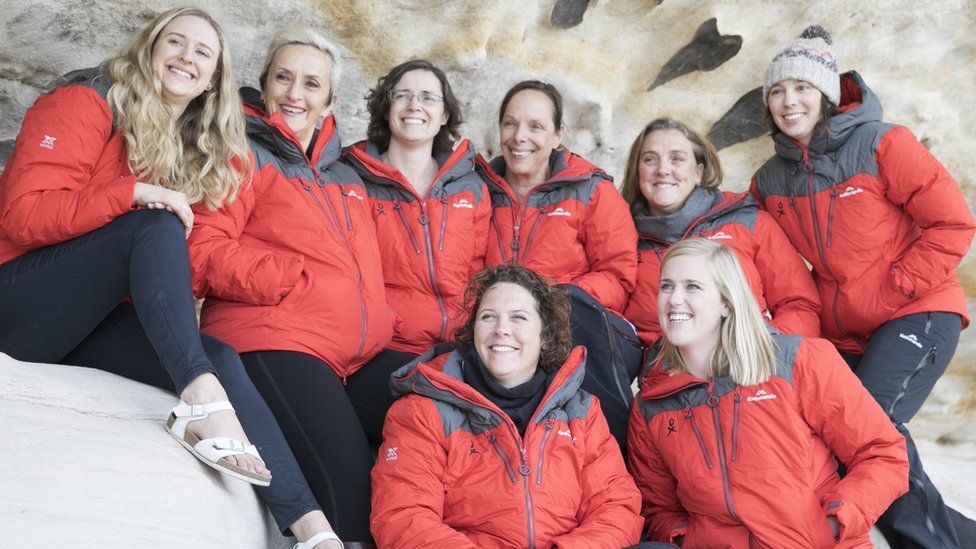Largest all-women expedition heads to Antarctica
- Published

On Friday the largest ever all-female expedition to Antarctica is setting sail, hoping to increase the number of women in important scientific roles around the world, writes Ben Collins.
They call Ushuaia, a cold and windy port city in Argentina, the end of the world.
It's from here that the largest ever all-female expedition to Antarctica will depart, with more than 70 women with backgrounds in science set to spend 20 days at sea.
The voyage is part of the Homeward Bound initiative, an Australian programme aimed at increasing the representation of women in top science jobs across the globe.
"We're missing half the voice at the leadership table," says Dr Jessica Melbourne-Thomas, who along with entrepreneur and management expert Fabian Dattner, came up with the idea.
The pair met during a leadership development course run by Dattner, and their frustration at the challenges faced by women in science quickly became a bold idea.
Two years later, the first of what is hoped to be several voyages is about to depart.
"For various reasons it can be difficult for women to get to Antarctica or the Arctic," Dr Melbourne-Thomas, an expert in Antarctic ecological modelling, says.
"Homeward Bound came out of discussions around that … and the lack of representation of women in science.
"It's been two years and a hell of a lot of work, but support from many different angles and Fabian's company Dattner Grant have played a very central role."
Balancing act
The 76 women who are taking part were selected from a pool of more than 1000 applicants, and will be given a chance to observe the effect climate change is having on Antarctica first-hand.
There will also be a series of lectures, leadership workshops and networking opportunities while they are at sea.
The importance of emotional intelligence, managing difficult conversations and influencing decisions are among the topics that will be covered as part of the leadership program, on top of lectures covering various aspects of Antarctic science.
A "faculty" of experts will be on board to administer the programme.
Dr Melbourne-Thomas says it is important that more women enter leadership roles as, particularly in the developing world, they stand to lose the most from climate change.
She believes many women are shut out because of the choices they need to make to balance families and the demands of senior roles, as well as a lack of role models.
"I've started thinking about Homeward Bound as one part of a wave of initiatives that together might mean we are able to move forward, rather than seeing this very slow rate of change," she says.
The expedition is privately funded, and each of the participants is paying for their own travel and accommodation on the boat.
Dr Melbourne-Thomas originally hoped the voyage would depart from Australian's Tasmania state, where the programme originated, but it wasn't possible without government funding.
"We turned to other options and now the voyage is leaving from South America," she says.
"They're much bigger vessels that operate out of South America.
"The Antarctic peninsula is the main tourist route — though this certainly is not a tourist voyage."
Applications for the next expedition, planned for 2018, will be open from January next year.